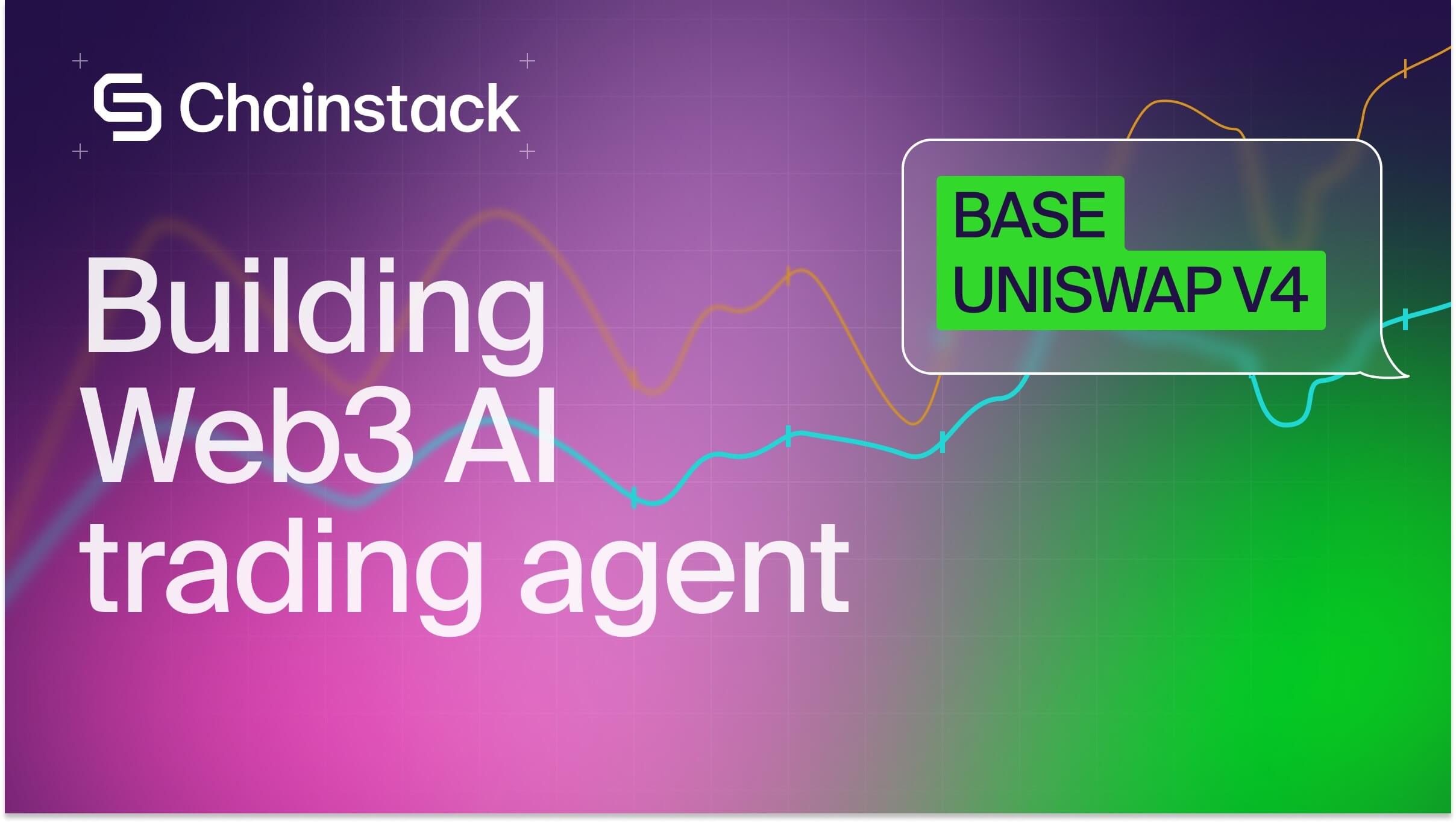- Chains
- Products
- RPC Infrastructure
- Global NodeGeo-balanced ultra-reliable RPC API designed to deliver unbounded performance
- Unlimited NodeFlat-fee RPS-tiered access for nonstop on-chain performance with unlimited API calls
- Dedicated NodeHigh-performance RPC nodes with flexible deployment and customization options
- Trader NodeLow-latency region-specific RPC endpoints for ultra-fast blockchain operations
- Ultra-fast TransactionsHighest transaction speed on the market with 100% landing rate. Zero customization required
- Blockchain Data
- Archive DataFast cost-effective RPC access for archive blockchain data operations
- gRPC Data StreamingYellowstone Geyser plugin for structured real-time Solana data streaming
- SubgraphsReliable indexing solution and managed subgraph hosting for instant data queries
- Extras
- MarketplaceBoost performance and scale in seconds with ready-made add-ons
- Why switch to Chainstack Our Customers
- Pricing
- Docs
- Developers
- Build with Chainstack
- Faucet PortalFree testnet tokens to jump-start your Web3 builds
- MCP Documentation ServerUp-to-date developer docs to put your agent on context steroids
- MCP Blockchain ServerNetwork connection for autonomous agent debugging on-chain
- Chainstack GitHubExplore our open-source SDKs, tools, and sample projects
- Help CenterSubmit and track issues for rapid, round-the-clock resolution
- Resources
- Performance DashboardReal-time latency and success rate check across popular chains among top RPC providers
- Web3 ToolsLibraries, SDKs, and Web3 utilities for deep-dive blockchain development
- Status PageAll systems operationalReal-time platform health status. Get updates via Slack, Email or Webhook
- Popular
- Compare EndpointsSide-by-side RPC benchmark tool to reveal the fastest endpoint
-
Become an ambassador
 Ethereum
Ethereum Solana
Solana TON
TON Base
Base BNB Smart Chain
BNB Smart Chain Sui
Sui Unichain
Unichain Aptos
Aptos TRON
TRON Ronin
Ronin zkSync Era
zkSync Era Sonic
Sonic Polygon
Polygon Gnosis Chain
Gnosis Chain Scroll
Scroll Avalanche Subnets
Avalanche Subnets Polygon CDK
Polygon CDK Starknet Appchains
Starknet Appchains zkSync Hyperchains
zkSync Hyperchains






















